As Tex McIver jury deliberations drag on — what does it mean?
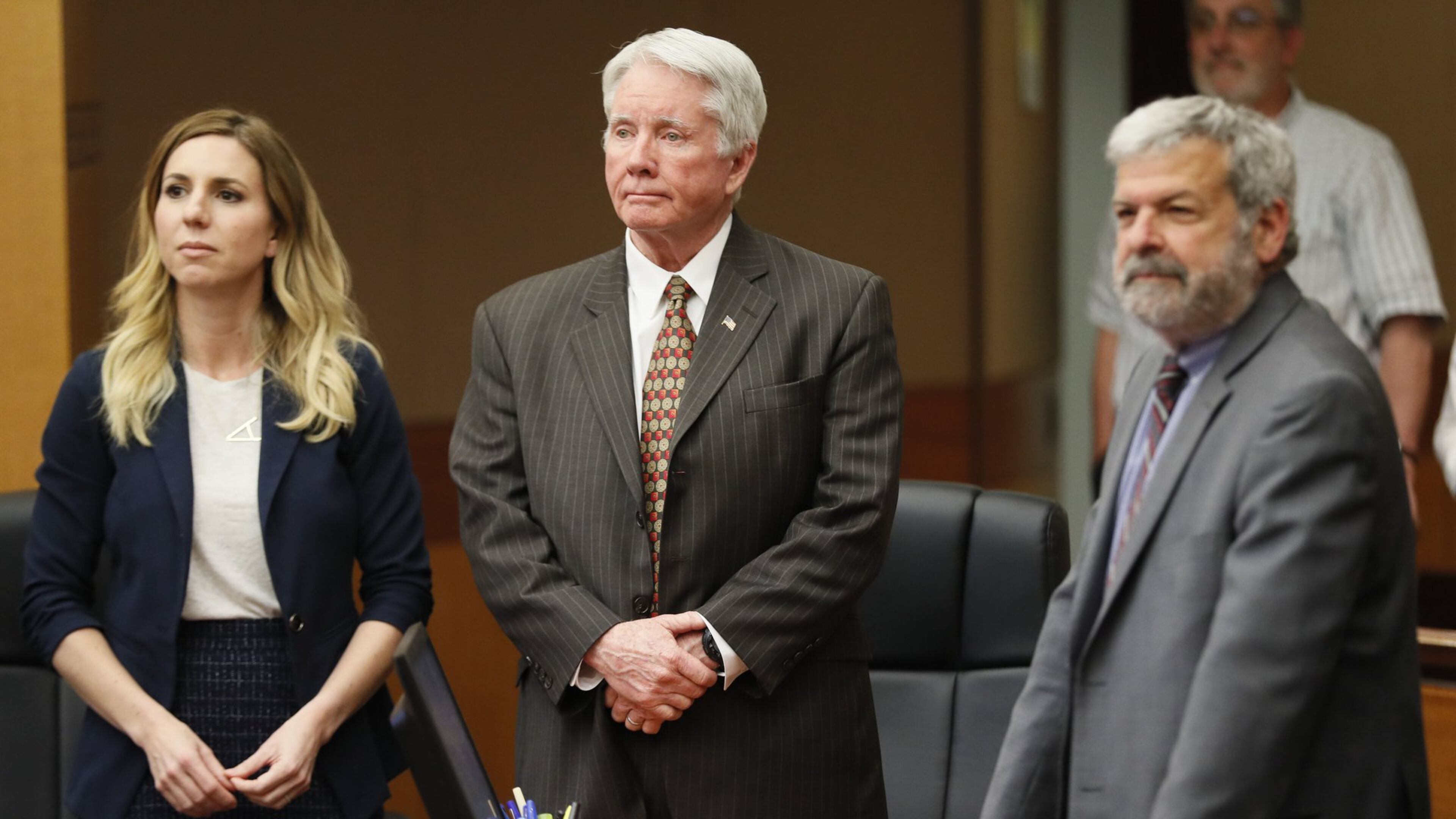
Late Friday, the seven women and five men serving as jurors in the Tex McIver murder trial called it quits and went home for the weekend without reaching a verdict.
Experts say their deliberations – roughly 24 hours over four days – are unusually long for a criminal trial. That's perhaps fitting for a case that has been characterized from the beginning by bizarre twists and turns.
But with the jury working in secret and providing few clues for outsiders to rely on, court watchers are left wondering: what’s going on?
Lawyers differ in what they think the lengthy deliberations could signal for Tex McIver, the prominent Atlanta attorney charged with intentionally shooting his wife, Diane, as they rode in their SUV near Piedmont Park. McIver, 75, has maintained the September 2016 shooting was a terrible accident.
RELATED: The jury in the Tex McIver trial
RELATED: Charges filed against Tex McIver
For Lawrence Zimmerman, who represented Leanna Taylor in her divorce from Ross Harris just before he was convicted of killing their son, the lengthy debate bodes well for McIver. Zimmerman said there’s an old adage lawyers follow: it takes longer for a jury to acquit than to convict.
“You don’t go four days and then convict someone,” the criminal defense lawyer said. “Definitely, people are hanging one way or the other. They’re not convinced of the evidence.”
But deliberation length and verdict don’t always appear to be connected. Take the Harris case, for instance. The jury met for four days in 2016 before finding Harris guilty of killing his toddler son, Cooper, by leaving him in a hot car.
In the retrial of Hemy Neuman, who was convicted that same year of killing the husband of his mistress, Andrea Sneiderman, the jury deliberated for just three and a half hours.
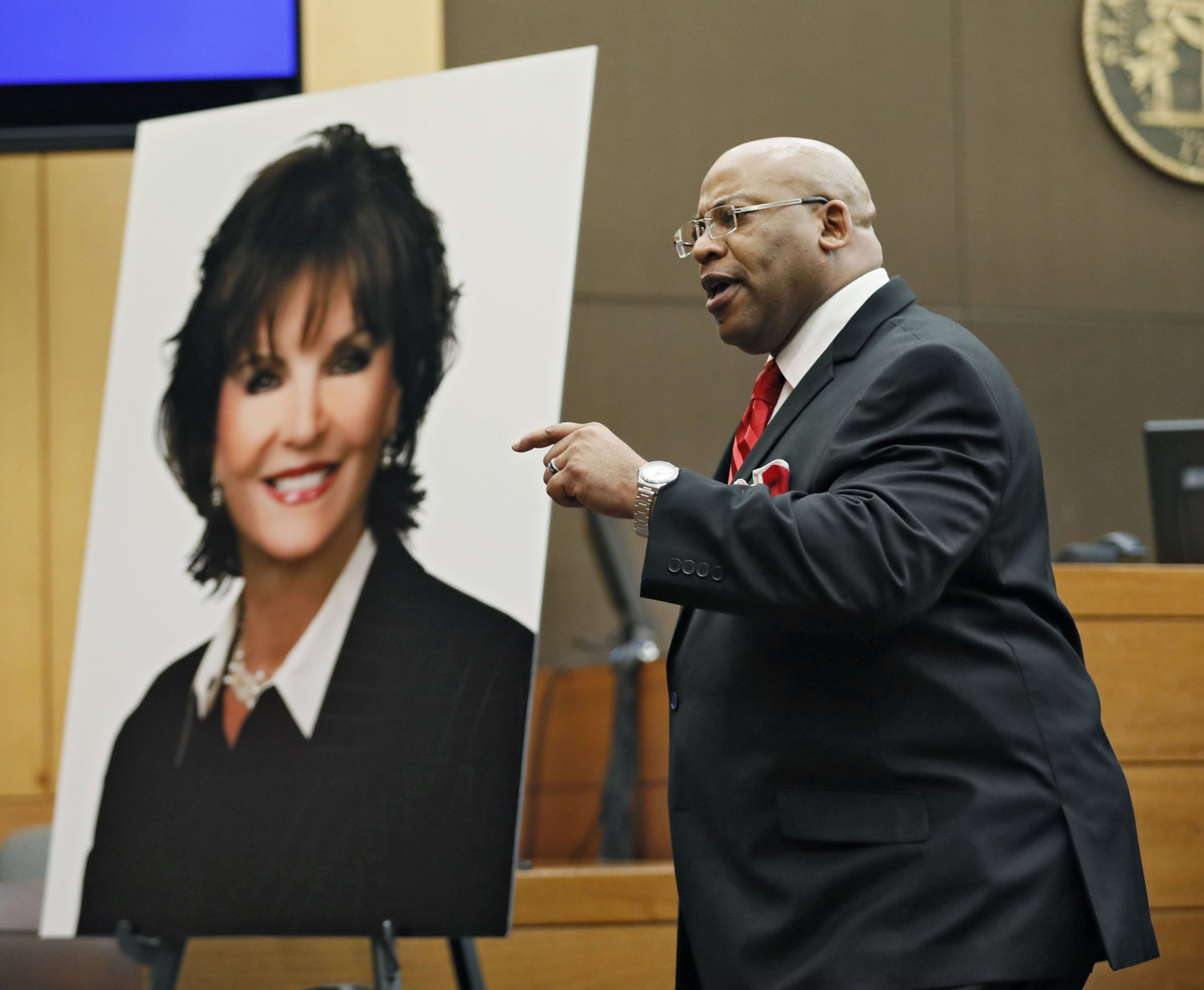
Bruce Morris, a criminal defense lawyer, said it’s ultimately impossible to know what’s going on in the jury room during those grueling hours.
“Some people think the longer they’re out there must be dissension and one or more jurors are intractable,” Morris said. “Others say it means they’re headed toward a compromise verdict. And there are some who think it indicates this is an intelligent jury that needs time to sift through all the evidence and analyze all the issues.”
The McIver jury is considering five criminal counts and heard from 78 witnesses who testified over 20 days.
And while the deliberations have lasted longer than some expected, there has been no public signal the jurors are actually stuck.
Fulton County Superior Court Judge Robert McBurney said as much when he dismissed the jury Friday afternoon.
“I haven’t been passed a note or asked a question about ‘what do we do if we’re deadlocked,’” McBurney said.
In fact, McBurney said, the jury indicated they were “making progress.”
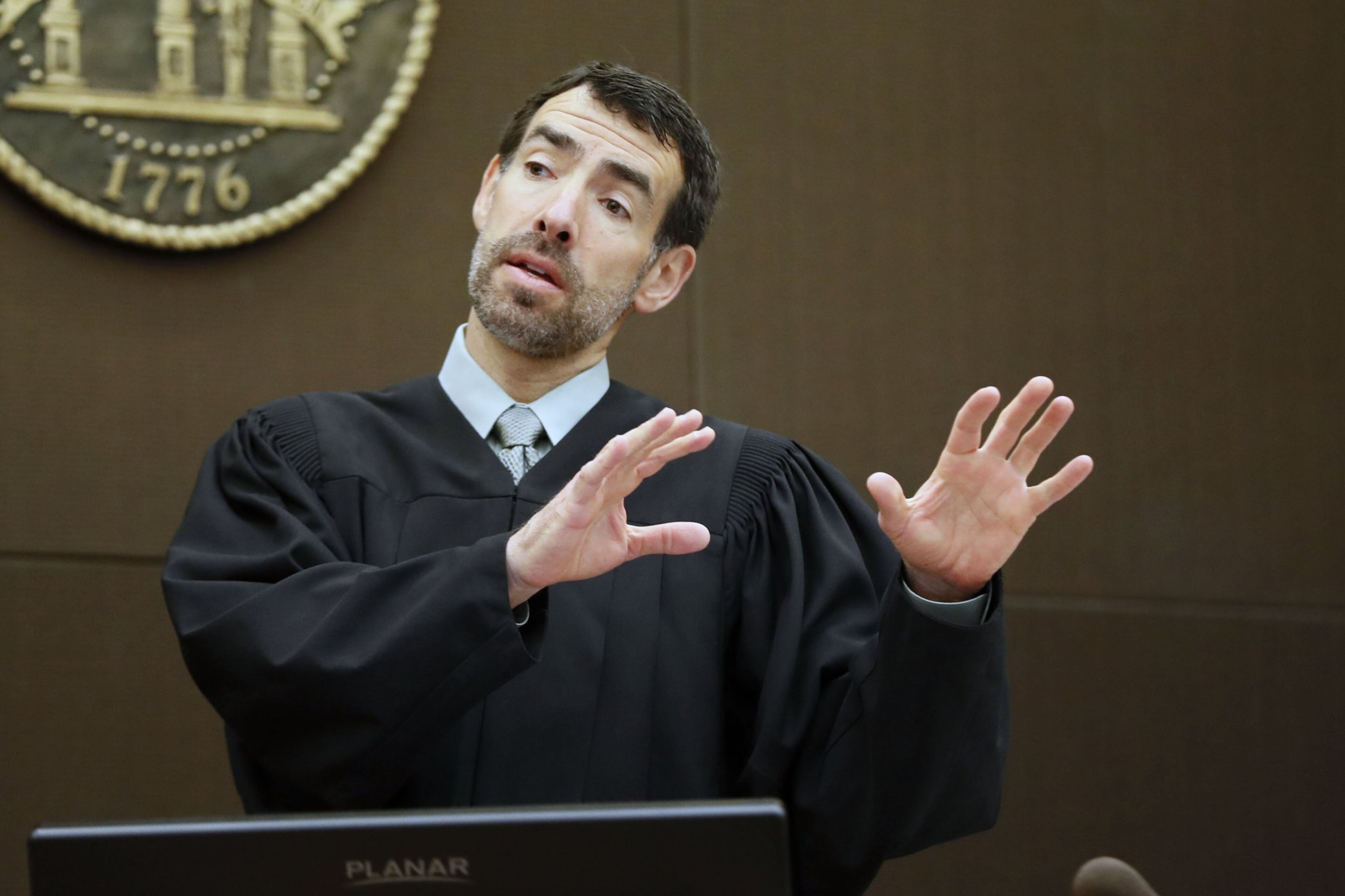
That has all led to intense scrutiny of the hints the jurors have dropped.
• The jury on Friday told the judge they wanted to work later than their self-imposed 4 p.m. cutoff time. Then, five minutes later, they chose to go home after all.
• On Wednesday, they asked the judge whether they could convict McIver of influencing witnesses if they acquitted him on the murder and other more serious charges.
• They asked to again sit in the Ford Expedition where the shooting took place, but this time with the .38 Revolver Tex McIver used to shoot his wife.
• They re-watched the interview Atlanta Police conducted with McIver.
What does it mean? For now, it's impossible to say.
The jury will resume deliberations on Monday.
And we are still far from any kind of record. Consider one 2003 California criminal trial, where a jury deliberated four months in a case involving three Oakland police officers accused of 35 counts of criminal misconduct, including beating suspects and planting evidence. The jury could only reach a verdict on 8 of the 34 counts, and a partial mistrial was declared.
RELATED: Who was Diane McIver?
RELATED: Timeline of the Tex McIver case
Juries can’t debate forever, though. If they don’t appear to be close to a resolution, the judge can give what is known as an “Allen charge,” an instruction meant to dislodge deadlocked jurors and encourage them to come to an agreement. It’s the judge’s way of putting pressure on the jury to avoid a mistrial.
McBurney hasn’t given such a charge, which lawyers say, is usually a sign a verdict could be close. The judge will likely give the charge if the jury does say they are deadlocked. And if he does, the defense will probably object.
“You don’t want them to be forced to make a decision,” Zimmerman said.
Lawyers all agree on one thing: the wait is eternity for the lawyers who tried the case.
Ed Garland, an Atlanta defense lawyer, said he knows all too well what it’s like waiting on a jury. And waiting. And waiting.
Years ago, during a fraud trial in Jacksonville, the jury deliberated for 23 days, said Garland, who works with two of McIver’s lawyers, Don Samuel and Amanda Clark Palmer.
On the 23rd day, a fight broke out between two jurors in the jury room, Garland said. A mistrial was declared and Garland’s client was later allowed to plead guilty to a misdemeanor.
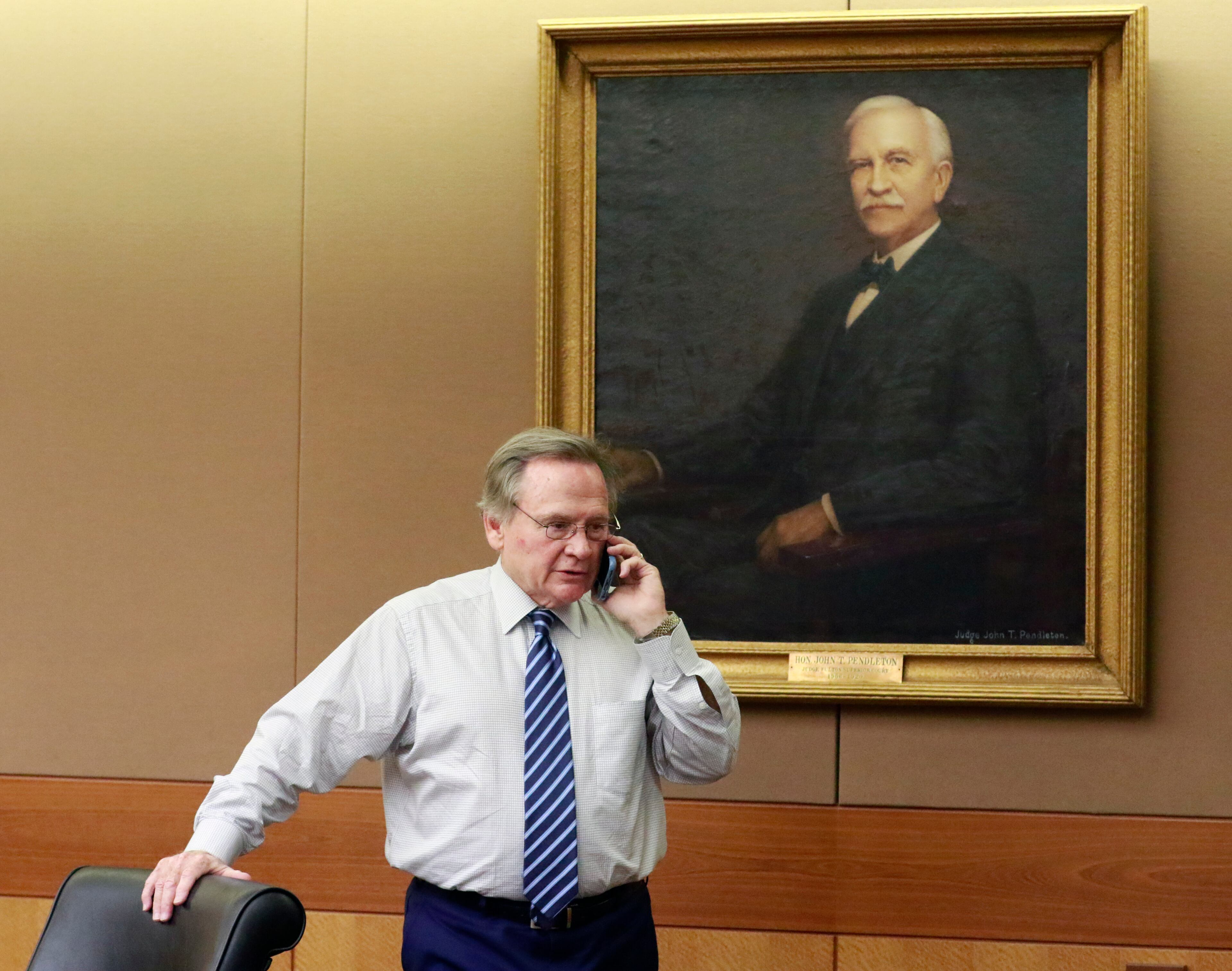
“It is miserable,” Garland said about waiting on a jury.
“It’s hard enough if it’s just two days. My experience is, for the lawyers, the uncertainty and anxiety make effective functioning on other matters very, very difficult. You can’t keep your mind focused.”
Ken Hodges has been on both sides, serving as district attorney in Dougherty County before moving into private practice. And he said the personal pressure is much greater on the defense.
“The state prosecutor isn’t representing the person whose liberty in criminal cases is at stake,” Hodges said. “And certainly, if you believe in the innocence of your client, you’re always anxiously awaiting because the stakes are very high.”
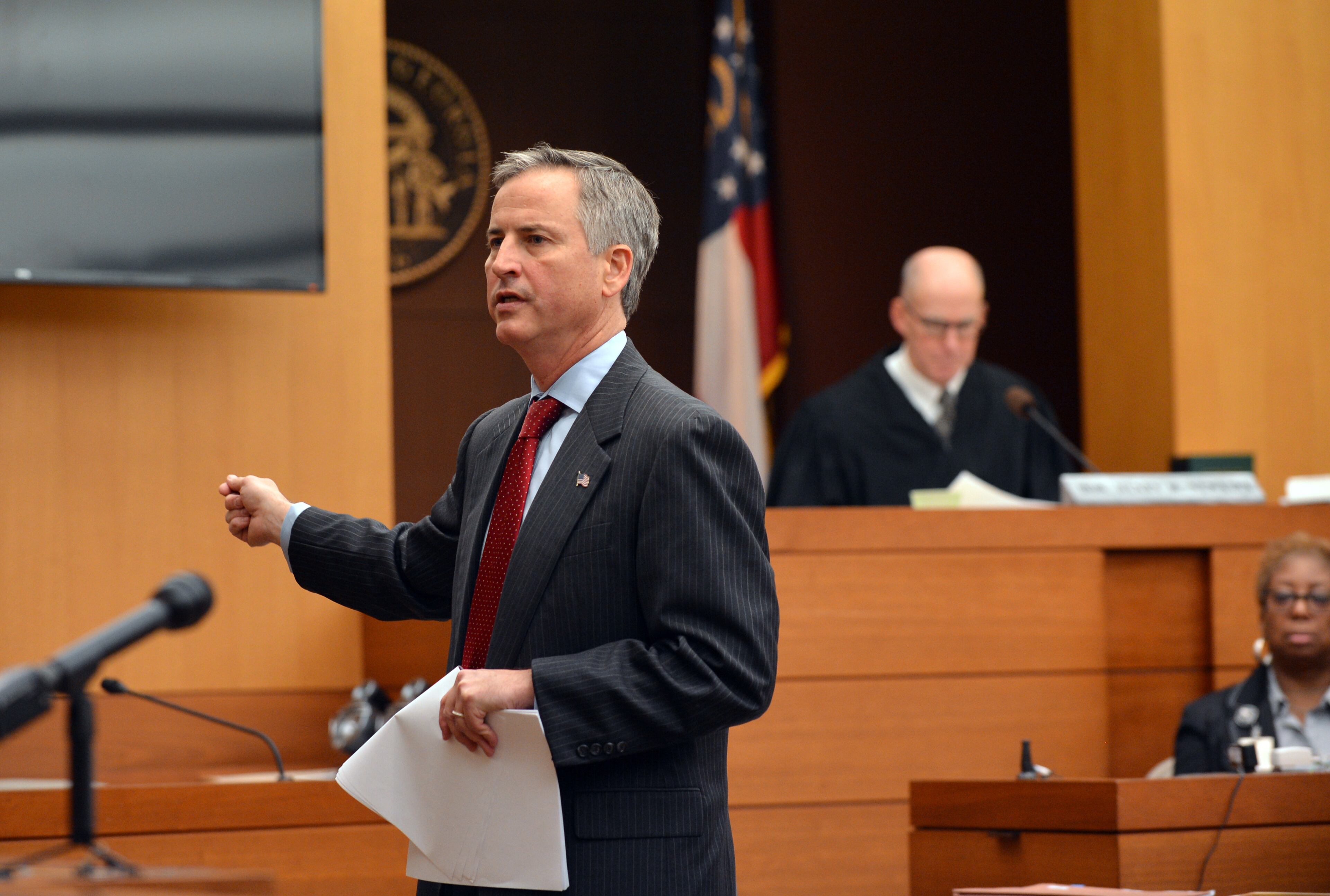
Hodges said in most of the trials in which he was involved, the jury deliberated for a day or less. He had one verdict returned within 15 minutes.
The longer the wait for a verdict, the more self doubt creeps in.
“What goes through your head is ‘what did I not present that I should have presented?’” Hodges said. “In a case like this, the stakes are so high that it’s hard to go on and do other work.”
So how do they cope with the stress? By learning to pace, “and pace and pace and pace,” Morris said.
“Because you really can’t focus on anything else,” he added.
-Atlanta Journal-Constitution reporter Bill Rankin contributed to this article
The story so far:
What happened?
Claud “Tex” McIver, a prominent Atlanta attorney, is on trial for murder in the shooting death of his wife, Diane, in September 2016. McIver maintains the shooting was an accident.
The latest:
After 20 days of testimony, closing arguments in the trial took place Tuesday. The jury wrapped up its fourth day of deliberation Friday without reaching a verdict. Despite appearing to be near a consensus on Wednesday, the panel has now logged about 24 hours of debate.
What’s next:
Jurors will reconvene on Monday at 9 a.m. to continue deliberations. They have not yet asked for help from the judge to resolve a deadlock, but if they do, Judge Robert McBurney may give an “Allen charge,” an instruction meant to encourage the jurors to resolve their differences.

